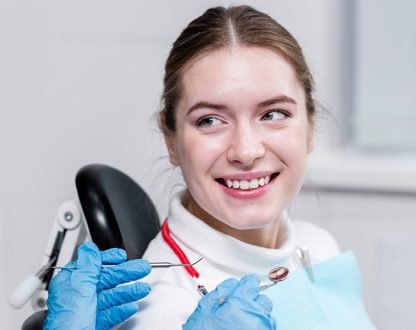Blogs to Learn about General and Cosmetic Dentistry

Is Cosmetic Dentistry Worth It? Boynton Beach Patients Share Their StoriesMay 1, 2025
Cosmetic dentistry in Boynton Beach offers a transformative approach to enhancing smiles, boosting confidence, and restoring dental function. This guide...
Read More
Considering Dental Implants in Boynton Beach? Here’s What You Need to KnowApril 14, 2025
Tooth loss can affect chewing, speech, and confidence. Dental implants in Boynton Beach, FL provide a durable and natural-looking solution,...
Read More
Can Invisalign Fix Your Dental Issues? A Boynton Beach PerspectiveMarch 4, 2025
Invisalign in Boynton Beach offers a modern solution to traditional braces, providing a discreet way to address various dental concerns....
Read More